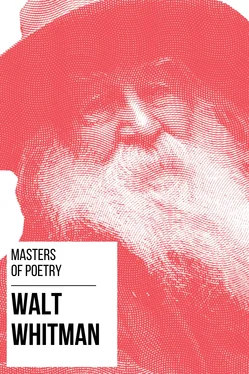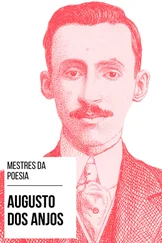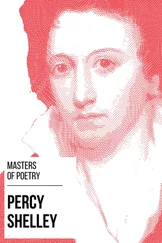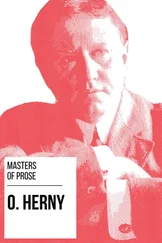The reader will be sure to demand of Whitman ample compensation for the absence from his work of those things which current poets give us in such full measure. Whether or not the compensation is ample, whether the music of his verse as of winds and waves, the long, irregular, dithyrambic movement, its fluid and tonic character, the vastness of conception, the large, biblical speech, the surging cosmic emotion, the vivid personal presence as of the living man looking into your eye or walking by your side,—whether all these things, the refreshing quality as of "harsh salt spray" which the poet Lanier found in the "Leaves," the electric currents which Mrs. Gilchrist found there, the "unexcelled imaginative justice of language" which Mr. Stevenson at times found, the religious liberation and faith which Mr. Symonds found, the "incomparable things incomparably well said" of Emerson, the rifle-bullets of Ruskin, the "supreme words" of Colonel Ingersoll, etc.,—whether qualities and effects like these, I say, make up to us for the absence of the traditional poetic graces and adornments, is a question which will undoubtedly long divide the reading world.
In the works upon which our poetic taste is founded, artistic form is paramount; we have never been led to apply to such works open-air standards,—clouds, trees, rivers, spaces,—but the precision and definiteness of the cultured and the artificial. If Whitman had aimed at pure art and had failed, his work would be intolerable. As his French critic, Gabriel Sarrazin, has well said: "In the large work which Whitman attempted, there come no rules save those of nobility and strength of spirit; and these suffice amply to create a most unlooked-for and grandiose aspect of beauty." "Overcrowded and disorderly" as it may seem, "if heroic emotion and thought and enthusiasm vitalize it," the poet has reached his goal.
Sometimes I define Whitman to myself as the poet of the open air,—not because he sings the praises of these things after the manner of the so-called nature-poets, but because he has the quality of things in the open air, the quality of the unhoused, the untamed, the elemental and aboriginal. He pleases and he offends, the same way things at large do. He has the brawn, the indifference, the rudeness, the virility, the coarseness,—something gray, unpronounced, elemental, about him, the effect of mass, size, distance, flowing, vanishing lines, neutral spaces,—something informal, multitudinous, and processional,—something regardless of criticism, that makes no bid for our applause, not calculated instantly to please, unmindful of details, prosaic if we make it so, common, near at hand, and yet that provokes thought and stirs our emotions in an unusual degree. The long lists and catalogues of objects and scenes in Whitman, that have so excited the mirth of the critics, are one phase of his out-of-doors character,—a multitude of concrete objects, a grove, a thicket, a field, a stretch of beach,—every object sharply defined, but no attempt at logical or artistic sequence, the effect of the whole informal, multitudinous. It may be objected to these pages that they consist of a mass of details that do not make a picture. But every line is a picture of a scene or an object. Whitman always keeps up the movement, he never pauses to describe; it is all action.
Passing from such a poet as Tennyson to Whitman is like going from a warm, perfumed interior, with rich hangings, pictures, books, statuary, fine men and women, out into the street, or upon the beach, or upon the hill, or under the midnight stars. We lose something certainly, but do we not gain something also? Do we not gain just what Whitman had in view, namely, direct contact with the elements in which are the sources of our life and health? Do we not gain in scope and power what we lose in art and refinement?
The title, "Leaves of Grass," is full of meaning. What self-knowledge and self-scrutiny it implies! The grass, perennial sprouting, universal, formless, common, the always spread feast of the herds, dotted with flowers, the herbage of the earth, so suggestive of the multitudinous, loosely aggregated, unelaborated character of the book; the lines springing directly out of the personality of the poet, the soil of his life.
"What is commonest, cheapest, nearest, easiest is me,"
says the poet, and this turns out to be the case. We only look to see if in the common and the cheap he discloses new values and new meanings,—if his leaves of grass have the old freshness and nutriment, and be not a mere painted greenness.
"The pure contralto sings in the organ loft,
The carpenter dresses his plank—the tongue of his foreplane whistles its wild ascending lisp,
The married and unmarried children ride home to their Thanksgiving dinner,
The pilot seizes the king-pin—he heaves down with a strong arm,
The mate stands braced in the whale-boat—lance and harpoon are ready,
The duck-shooter walks by silent and cautious stretches,
The deacons are ordained with crossed hands at the altar,
The spinning-girl retreats and advances to the hum of the big wheel,
The farmer stops by the bars, as he walks on a First Day loafe, and looks at the oats and rye,
The lunatic is carried at last to the asylum, a confirmed case,
He will never sleep any more as he did in the cot in his mother's bedroom;
The jour printer with gray head and gaunt jaws works at his case,
He turns his quid of tobacco, while his eyes blurr with the manuscript;
The malformed limbs are tied to the anatomist's table,
What is removed drops horribly in a pail;
The quadroon girl is sold at the stand—the drunkard nods by the bar-room stove,
The machinist rolls up his sleeves—the policeman travels his beat—the gate-keeper marks who pass,
The young fellow drives the express-wagon—I love him, though I do not know him,
The half-breed straps on his light boots to compete in the race,
The western turkey-shooting draws old and young—some lean on their rifles, some sit on logs,
Out from the crowd steps the marksman, takes his position, levels his piece;
The groups of newly-come emigrants cover the wharf or levee,
As the woolly-pates hoe in the sugar-field, the overseer views them from his saddle,
The bugle calls in the ball-room, the gentlemen run for their partners, the dancers bow to each other,
The youth lies awake in the cedar-roofed garret, and harks to the musical rain,
The Wolverine sets traps on the creek that helps fill the Huron,
The reformer ascends the platform, he spouts with his mouth and nose,
········
Seasons pursuing each other, the plougher ploughs, the mower mows, and the winter-grain falls in the ground,
Off on the lakes the pike-fisher watches and waits by the hole in the frozen surface,
The stumps stand thick round the clearing, the squatter strikes deep with his axe,
Flatboatmen make fast, towards dusk, near the cotton-wood or pekan-trees,
Coon-seekers go through the regions of the Red River, or through those drained by the Tennessee, or through
those of the Arkansas,
Torches shine in the dark that hangs on the Chattahooche or Altamahaw,
Patriarchs sit at supper with sons and grandsons and great-grandsons around them,
In walls of adobe, in canvas tents, rest hunters and trappers after their day's sport,
The city sleeps and the country sleeps,
The living sleep for their time, the dead sleep for their time,
The old husband sleeps by his wife, and the young husband sleeps by his wife;
And these one and all tend inward to me, and I tend outward to them,
And such as it is to be of these, more or less, I am."
What is this but tufts and tussocks of grass; not branching trees, nor yet something framed and deftly put together, but a succession of simple things, objects, actions, persons; handfuls of native growths, a stretch of prairie or savanna; no composition, no artistic wholes, no logical sequence, yet all vital and real; jets of warm life that shoot and play over the surface of contemporary America, and that the poet uses as the stuff out of which to weave the song of himself.
Читать дальше












